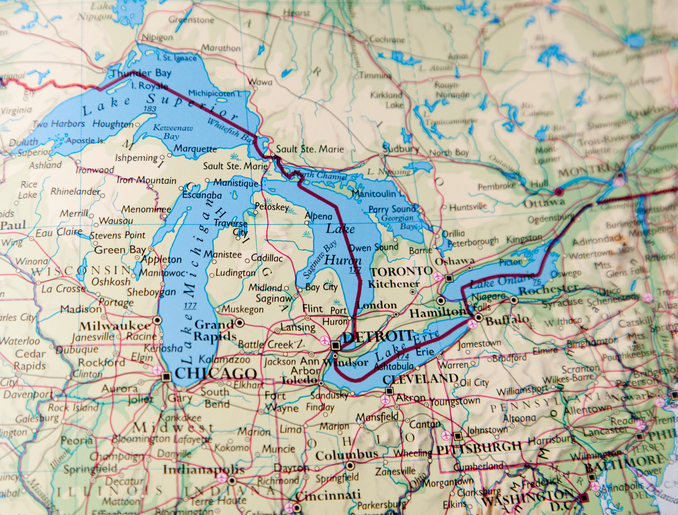United States congressional representatives have appealed directly to the president that he provide $300 million to support the Great Lakes Restoration Initiative (GLRI) in response to his proposed budget cuts.
Yesterday, a total of 63 U.S. congressional representatives from Minnesota, Wisconsin, Illinois, Indiana, Michigan, Ohio, Pennsylvania, New York, and other states wrote to Donald Trump to explain that the Great Lakes are a U.S. national treasure and an economic driver. Furthermore, the representatives explained to Trump that, “The Great Lakes are the largest freshwater system in the world, holding roughly 18 percent of the world’s fresh water supply and 90 percent of the United Sates’ fresh water supply.”
This response to the budget cuts for 2018 comes after statements of concern from officials on both sides of the border. In order to indicate the importance of the GLRI, representatives cited “real and measurable results,” which have helped to correct “more than a century of environmental damage.” The letter also describes the vulnerability of the Great Lakes to pollutants, invasive species, and told the president of the 2014 toxic algal bloom in Lake Erie, which “forced 400,000 residents in Toledo area to go without home water service for three days.” The authors go on to state that, “more must be done to better understand and prevent” the blooms.
Robert Sandford, EPCOR Chair for Water Security at the United Nations University Institute for Water, Environment and Health, found similarities between the Trump and Harper governments in their response to water and environmental management. “There was a time—the 1970s and early 1980s—when Canada had a world-class reputation for building national prosperity on clean and abundant water.” But, he said, decay in water management began in the 1990s with break-up of the Federal Inland Waters Directorate and saw a “near death knell […] with the Harper government’s abrogation of responsibility for fisheries habitat, navigable waters protection, and environmental impact assessment.”
Now, much of Canada’s work to protect water is de-centralized, said Sandford, “Water issues in Canada fall in a largely uncoordinated fashion to the ten provinces and three territories resulting in atomization of water management policy.” As the Washington Post reported, it’s U.S. mayors, governors, and business people who will be tasked with responding to environmental issues without federal support.
The response from the 63 congressional representatives is evidence of the bi-partisan, regional action that will come as a response to the lack of federal investment. The 23 Republicans and 40 Democrats told the president that “halting this commitment would reverse years of progress, dramatically reduce the GLRI’s impact, and jeopardize the environmental and economic health of the region.”
The letter can be found online here.









